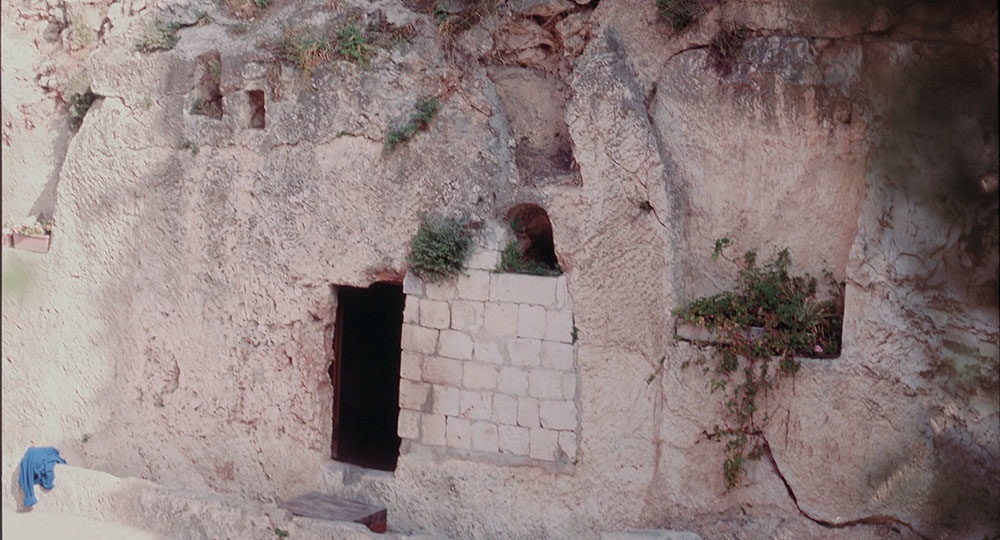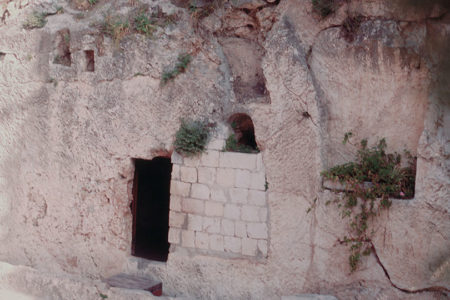Coming Again
At the climactic moment of Jesus’ ministry with His disciples, right after Peter had confessed Him as the Messiah (Mk. 8:29), Jesus turned to His disciples and stunned them. He taught them that He would suffer; be rejected by the Jewish leaders; be killed; and, after three days, rise again. Apparently, Peter understood only the first part of this message because he immediately rebuked Jesus (Mk. 8:31–32). And we can understand why. How could Messiah die? If Messiah died, what about the promised Kingdom? What about us? The answer to these questions is found in the last words of Jesus’ teaching: After three days, He would rise again.
Many Jewish people, primarily the Pharisees, believed in a resurrection based on Isaiah 26:19 and Daniel 12:2. However, not all Jews did. The Sadducees, who considered only the Pentateuch as Scripture and were influenced by Hellenism, mocked the concept of a resurrection (cf. Mk. 12:18–27; Acts 23:6–10). Furthermore, the Pharisees understood that the resurrection would come at the establishment of the Kingdom, which a victorious Messiah would usher in. So if Messiah died, how could all this happen?
Messiah’s Resurrection
Peter did not understand until later that Messiah’s suffering, death, and resurrection had already been foretold in the Old Testament. Zechariah 11 envisions the Shepherd being rejected for 30 pieces of silver. Isaiah 53 tells of the Lord’s Servant and His atoning sacrifice. Yet when Jesus went to the Hebrew Scriptures for prophetic typology, He used the Davidic Psalms. They not only prophesied Messiah’s victory over the nations (e.g., Ps. 2) but also His suffering and resurrection.
On the cross, Jesus cried out the first phrase of Psalm 22:1: “My God, my God, why hast thou forsaken me?” (Mk. 15:34). The rest of this psalm pictures the suffering Jesus experienced in His crucifixion. Near the end of Psalm 22, David wrote, “but when he cried unto him, he heard” (v. 24). Jesus’ vindication did not come in the form of a rescue from the cross but, rather, three days later, in His resurrection. That God raised Jesus from the dead was God’s testimony that Jesus was truly the Messiah and that His sacrifice for the sins of the world was accepted and completed.
After Jesus’ 40-day postresurrection ministry to the disciples, (when He explained all these truths from the Old Testament, Lk. 24:44–48), Jesus ascended into heaven from the Mount of Olives (Acts 1:9–12). A few days later, on the Day of Pentecost, Peter and the other disciples were praying in Jerusalem when the Holy Spirit was poured out on them. When Peter preached to the crowd, he proclaimed that Jesus had been raised from the dead; and he used Psalm 16:8–11, where David prayed, “neither wilt thou permit thine Holy One to see corruption” (v. 10). Peter argued that Psalm 16:10 prefigured Jesus’ resurrection and that it did not speak of David because David’s body was in a tomb known in Jerusalem. Jesus’ body, however, could not be produced (Acts 2:29–32). Although Jesus died, His body did not lie in the tomb long enough to decay; and thus Psalm 16:10 prophesied His resurrection from the dead.
Jesus’ resurrection does not contradict the Old Testament teaching of Isaiah and Daniel. At the establishment of the Kingdom, all the saints who have died will have been raised to enter the Kingdom (Rev. 20:4–5). Paul later likened this event to the Jewish feast of Firstfruits. Jesus’ resurrection was like the first sheaf that was waved before the Lord as a testimony of faith that many more would follow (1 Cor. 15:20).
Messiah’s Ascension
Also on the Day of Pentecost, Peter not only proclaimed that Jesus had been raised from the dead but, most important, that He was now Lord (LORD) over all. To prove this truth, he again went to the Davidic Psalms, this time Psalm 110:1. Jesus had used this verse to stump His opponents when they questioned Him in the Temple (Mk. 12:35–37). In Psalm 110:1 David wrote, “The LORD said unto my Lord, Sit thou at my right hand, until I make thine enemies thy footstool.” Jesus asked His opponents how David’s son (the Messiah) could also be David’s “Lord,” since the father always receives more honor than the son. Jesus’ opponents could not answer the question. Neither did Jesus at the time. However, the only answer is that Jesus is not only the Messiah—David’s physical son—but He is also the Son of God, making Him David’s Lord.
Consequently, Peter quoted Psalm 110:1 (Acts 2:33–36) to prove that Jesus had taken His place at the right hand of the Father in heaven and is now “Lord and Christ,” which was the basis of the pouring out of the Spirit in the first place—the very activity that caused the excitement in Jerusalem that day. Peter reasoned that, since the Spirit had been poured out in accordance with Joel 2, Jesus must have ascended to heaven because He is the one who poured out the Spirit.
Messiah’s Return
A reasonable argument in Jewish circles against Jesus being the promised Messiah is the absence of the promised Israelite Kingdom, ruled by a Davidic descendant from Jerusalem (Ezek. 34—37). The New Testament’s answer to this criticism is that Jesus the Messiah has not yet finished His work and will come again to establish that Kingdom and rule from Jerusalem as promised.
A few days after the Day of Pentecost, Peter again found himself preaching to Jewish people in Jerusalem. He exhorted the nation to repent so the Kingdom would come. In a sense, he said that Jesus was waiting in heaven until the Jewish people repented, so He could return to establish the Kingdom (Acts 3:19–22; cf. Zech. 12:10–14). At that time, Jesus actually will set His feet on the Mount of Olives (Zech. 14:4).
But the nation did not repent at Peter’s preaching, nor has it to this day. And so the Lord remains in heaven, waiting as He intercedes for believers. In the meantime, His purpose is not frustrated, for, as Jesus taught His disciples, the gospel must go forth to the whole world before the end comes (Mt. 24:14). Paul recognized “that blindness in part is happened to Israel, until the fullness of the Gentiles be come in” (Rom. 11:25). Then the nation will repent, and “all Israel shall be saved” (Rom. 11:26).
It is at Jesus’ Second Advent, or His return, that the remainder of Psalm 2 finds fulfillment. The Kingdom and rule of the Son is spoken of as a “rod of iron” that will break humanity’s willful rebellion against God’s Messiah (v. 9; cf. Acts 4:23–28). This event will occur at Jesus’ Second Coming, as pictured in Revelation 19:15 (cf. Ps. 2:9) where Jesus as Lord destroys the Antichrist and his forces and establishes His throne in Jerusalem and His righteous rule over the earth (cf. Matt. 25:31ff.).
The psalmist in Psalm 2:10–12 warns people to take note of the authority given to the Son and “kiss the Son,” lest He be angry and one receive His wrath. Although Messiah’s return is an object of great hope to those who know Him, it will be disaster for those who do not. The Messiah waits in heaven for everyone to come to Him. But He is returning soon.
On the island of Patmos near the end of the first century, the apostle John had a vision of God’s throne. Before the throne stood a Lamb that had been slain. An angel introduced this personage as “the Lion of the tribe of Judah, the Root [Branch] of David” (Rev. 5:5), who had prevailed and been found worthy to receive from the Father’s hand the book that represented the inheritance of the earth. In Jesus’ First Advent, which culminated in His death on the cross, He was the Lamb of God, sacrificed for the sins of the world. In response to Jesus’ obedience as the ultimate Servant of the Lord, God then raised Him from the dead and has now exalted Him as Lord over all. One day all creatures will acknowledge Him as Lord (Phil. 2:5–11; Is. 45:20–25).
As Jesus taught His disciples to pray, so is our prayer today:
Our Father, who art in heaven, Hallowed be thy name [cf. Ezek. 36:23]. Thy kingdom come. Thy will be done in earth, as it is in heaven (Mt. 6:9–10).







